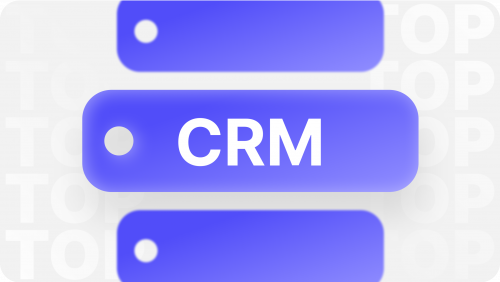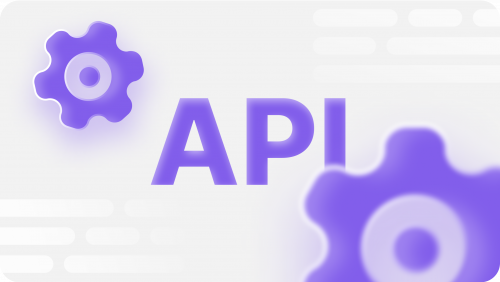How Blockchain in CRM Can Improve User Engagement
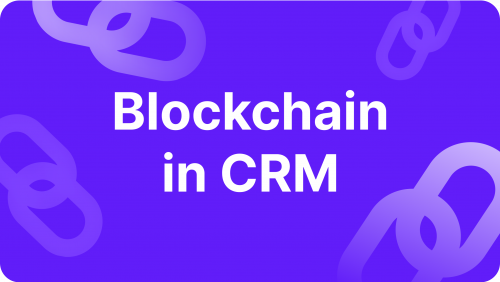
As CRM evolves and customer expectations grow, companies need to think more broadly about how they interact with their customers. Blockchain technology revolutionises customer management, allowing companies to engage with customers better, increase profitability, and reduce costs.
In this article, we will explore how blockchain in CRM can take customer management and business-client relationships to a new level.
Key Takeaways
- CRM systems help manage customer interactions to improve relationships, retain customers, and drive sales.
- Blockchain-based CRM systems can offer clients increased security, transparency, and control over their own data.
- It is expected that CRM will outpace overall enterprise software growth in the future.
What is CRM?
CRM, or Customer Relationship Management, is a business strategy that involves managing customer interactions to improve relationships, retain customers, and drive sales. CRM is a crucial tool for businesses dealing with their customers. It stores customer details and helps businesses manage their customer base, track customer interest, identify customer preferences and problems, and decide on product upgrades.
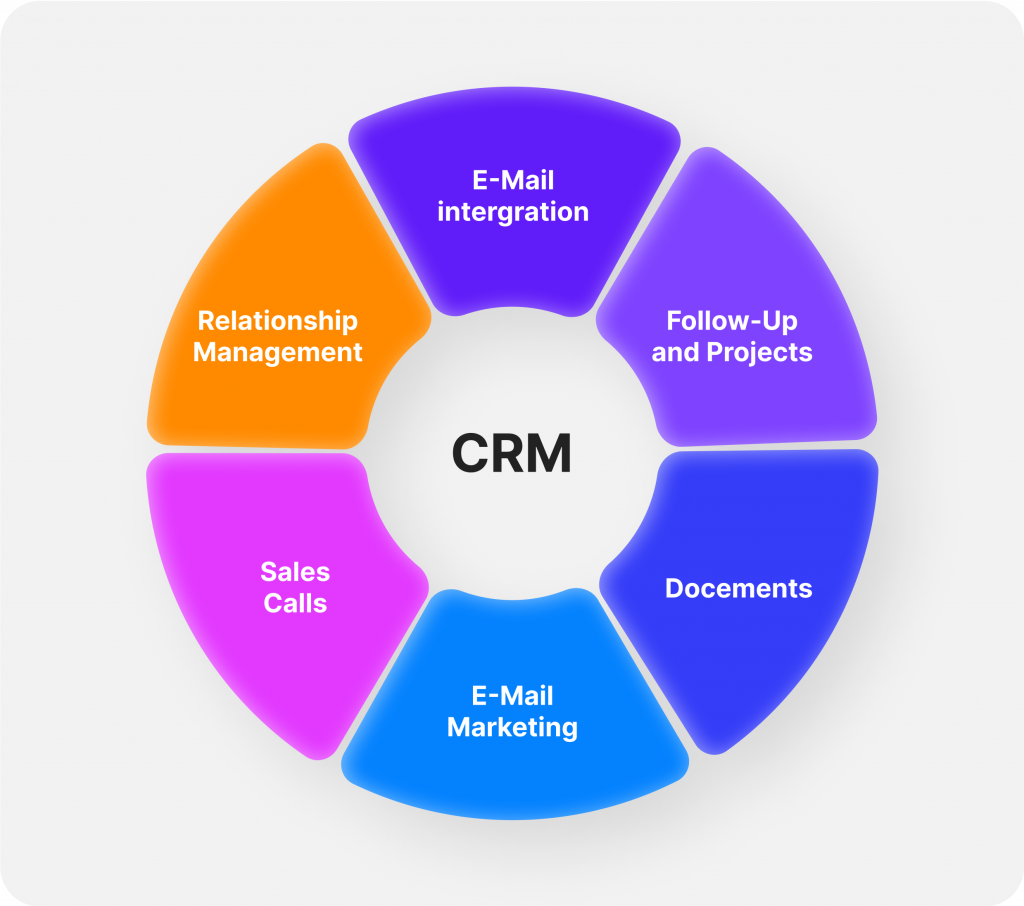
However, many companies still refuse to implement CRM systems or similar solutions. The main reasons for this lack of investment include high costs, complex processes leading to inaccurate or incomplete customer data, the need to rebuild the same model for each business, having local data instead of a global network, and management, analysis, and operations expenses.
Businesses of all sizes and industries are turning to CRM tools to create a central hub for audience reports, better understand their customers, build stronger relationships, engage with potential customers, automate processes, increase customer engagement, and close more deals. CRM software also helps businesses engage with potential customers, increase automation and customer engagement, and close more deals.
CRM systems are widely used in the Forex industry. A Forex CRM system centralises client management, enabling brokers to handle interactions, monitor trading activity, and enhance customer experience.
CRM implementation offers benefits like improved client retention, lead generation, streamlined onboarding, account management, and real-time reporting for data-driven decision-making. It is crucial for FX brokers to find the best Forex CRM provider as it serves as a digital backbone for brokers, enabling them to manage their relationships with clients and prospects effectively
Blockchain and CRM: What Benefits Does This Combination Bring?
Traditional systems store customer data in centralised CRM databases prone to hacks and data breaches. Blockchain-based CRM systems offer a secure, transparent, and decentralised approach to customer data storage. The growing popularity of blockchain technology allows CRM systems to integrate this new method with existing legacy systems.
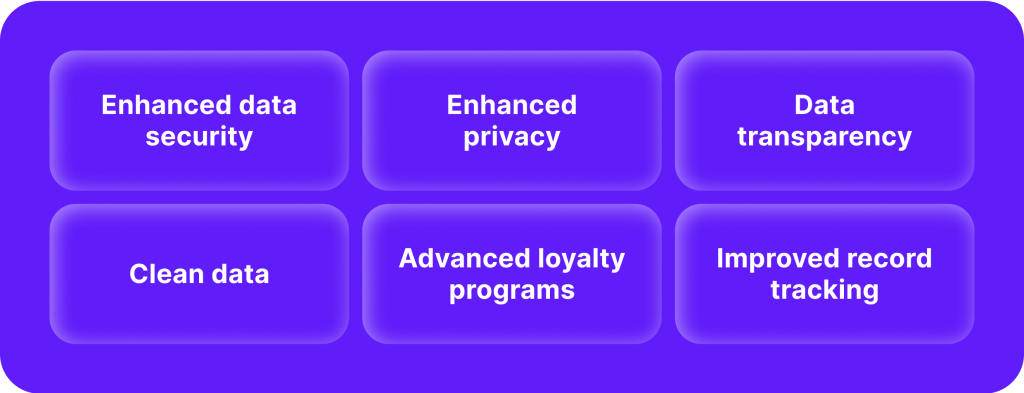
Enhanced Security
Blockchain technology enhances security by connecting transaction records to neighbouring blocks, providing users with verified network keys for their data. Unlike centralised cloud servers, blockchain is decentralised and distributed across peer-to-peer networks, making tampering virtually impossible. This vast scale reduces fraud and criminal activities, making it a more secure and efficient system.
Increased Data Security and Privacy
Cybercrime has increased the need for data security and privacy. Blockchain, being decentralised and secure, encrypts and stores data by default, ensuring privacy. As companies handle more data, blockchain can efficiently manage and secure it, eliminating security risks and maintaining its integrity.
Data Transparency
Data sharing has become a crucial aspect of business operations, but it has become increasingly difficult to manage due to the growing volume of data. Many businesses rely on CRM software to store and manage their data, but this often leads to data silos and inconsistent information, causing mistrust and hindering collaboration. Blockchain technology can help address these issues by providing a more transparent and secure way of sharing data.
Blockchain is a decentralised ledger that is transparent and immutable, allowing for greater visibility into data sharing and easier verification of accuracy. Smart contracts, self-executing contracts, can also improve data sharing by automatically enforcing the terms of agreements between parties.
Clean Data
CRM management faces challenges like inaccurate data, duplicate data, and confusion due to human errors or imperfect tools. Blockchain offers customers a personal key to provide complete, accurate data, eliminating the need for third-party involvement or import tools and ensuring error-free information presentation.
Loyalty Programs
Blockchain technology enables organisations to develop personalised loyalty programs and incentives for loyal customers by tracking transactions. This allows for the analysis of customer purchasing behaviour, resulting in highly customised rewards and marketing strategies based on the type of goods purchased. This approach has been proven to increase customer retention.
Improved Record Tracking
Blockchain integration with CRM software enhances data tracking, data origination, transfer, and transaction closure. It also helps organisations overcome business and implementation challenges related to CRM, thereby reviving the data origination, transfer, and transaction closure process.
Blockchain Use Cases in CRM for Forex and Crypto Businesses
Blockchain technology can revolutionise Forex and crypto business operations by improving customer validation, regulatory reporting, and cross-bank and cross-border transfers.
The Know Your Customer (KYC) process, a manual process that requires multiple reviewers, can be completed faster and more transparently by integrating blockchain technology.
Moreover, blockchain’s capacity for real-time transaction verification and its ability to execute automated settlements via smart contracts not only speeds up trading activities but also cuts down on operational costs.
Additionally, the adoption of blockchain in CRM systems enables Forex and crypto businesses to offer innovative financial products and personalised services, improving customer engagement.
The technology’s facilitation of rapid, cost-effective cross-border payments expands global market reach, making services more accessible and enhancing the overall customer experience.
How to Integrate Blockchain in CRM
Integrating blockchain technology into CRM systems begins with a thorough assessment of the existing CRM infrastructure to identify areas where blockchain can add the most value, such as transaction security, data integrity, and customer verification processes.
Following this, businesses should select a blockchain platform that aligns with their specific needs, considering factors like scalability, transaction speed, and compatibility with existing systems.
The next step involves developing or adapting smart contracts to automate and secure processes such as compliance checks, customer onboarding, and transactions. These contracts must be rigorously tested in a controlled environment to ensure they function correctly under various scenarios.
Integration also requires attention to data migration and interoperability, ensuring that existing customer data can seamlessly interact with the blockchain network without compromising security or privacy.
Training for staff is crucial to ensure they understand how to use and maintain the new system effectively. Additionally, ongoing support and maintenance are necessary to address issues promptly and update the system as technology evolves.
Finally, it’s important to communicate the benefits of this integration to customers, highlighting enhanced security, improved service efficiency, and the introduction of new, innovative services. This helps build trust and encourages the adoption of new processes facilitated by blockchain integration.
Overall, the future of blockchain-based CRM is one of the brightest, and keeping up with these trends will surely translate to higher conversion rates.
Final Thoughts
By merging blockchain in CRM, businesses can ensure customer data privacy, gain a comprehensive view of customer interactions, and streamline processes through smart contracts.
This integration will unlock new possibilities for personalised, trustworthy, and efficient customer experiences. While blockchain is still in its preliminary phase, its capabilities make it a justifiable claim to revamp business operating models fundamentally.
